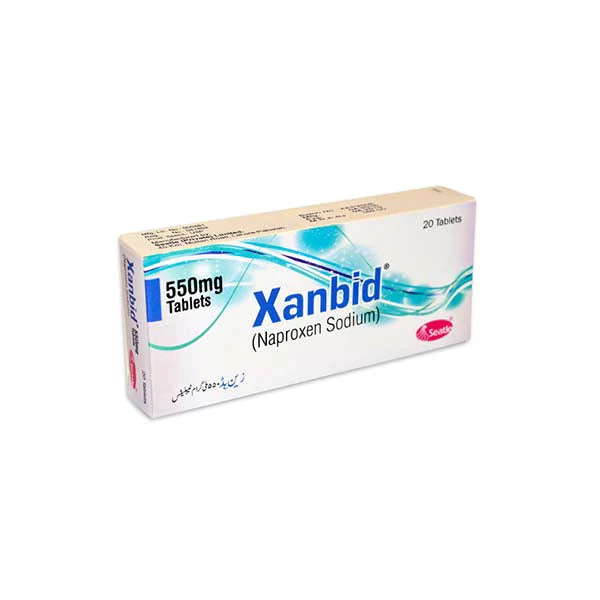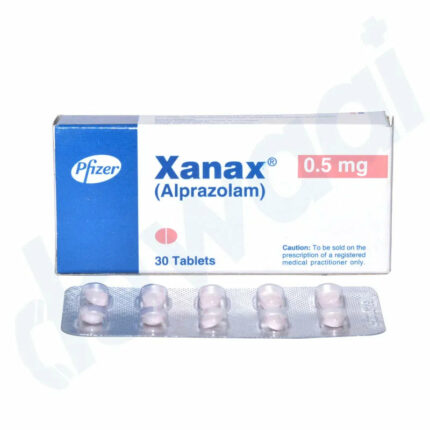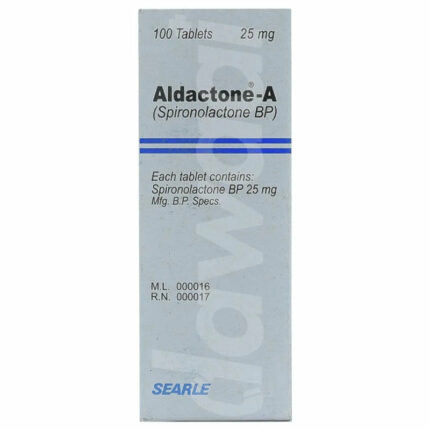Xanbid 550mg contains Naproxen, a non-steroidal anti-inflammatory drug (NSAID). It works by inhibiting the production of prostaglandins, the chemical messengers responsible for pain, fever, and inflammation. Due to its analgesic, antipyretic, and anti-inflammatory properties, it is widely used for short-term and long-term pain management in musculoskeletal conditions and menstrual pain.Xanbid 550mg (Naproxen) is a widely used pain reliever and anti-inflammatory, but prolonged or inappropriate use can cause serious gastrointestinal and cardiovascular risks. Always consult a doctor for safe and effective use.
Primary Uses
-
Pain relief in dental pain, headache, backache.
-
Relief of menstrual cramps (dysmenorrhea).
-
Treatment of joint and muscular pain such as:
-
Osteoarthritis.
-
Rheumatoid arthritis.
-
Tendinitis.
-
Bursitis.
-
Ankylosing spondylitis.
-
-
Management of acute gout attacks.
-
Relief of postoperative and traumatic pain.
How to Use
-
Take orally with a full glass of water.
-
Best taken with food or milk to reduce stomach irritation.
-
Do not lie down immediately after taking this medicine.
-
Always use the lowest effective dose for the shortest possible duration.
-
Follow your doctor’s prescribed dosage schedule.
Dosage
-
Adults: Typically 250–500 mg twice daily, depending on severity of condition.
-
For menstrual pain and acute pain: 550 mg initially, then 275 mg every 6–8 hours as required.
-
Maximum daily dose should not exceed 1375 mg/day unless prescribed.
-
Not recommended in children under 12 years, unless specifically prescribed.
Side Effects
Possible side effects may include:
-
Stomach upset, nausea, vomiting.
-
Heartburn, indigestion, abdominal pain.
-
Dizziness, headache, drowsiness.
-
Fluid retention, edema.
-
Rash, itching (rare allergic reaction).
-
Rare but serious: stomach ulcers, gastrointestinal bleeding, liver or kidney impairment, increased cardiovascular risk.
Seek immediate medical attention if you experience bloody stools, severe abdominal pain, chest pain, shortness of breath, or allergic reactions.
Warnings & Precautions
-
Pregnancy: Avoid, especially in the 3rd trimester, unless prescribed.
-
Lactation: May pass into breast milk—use only if prescribed.
-
Driving: May cause dizziness—avoid driving or operating heavy machinery.
-
Alcohol: Avoid, as it increases the risk of stomach bleeding.
-
Use cautiously in patients with:
-
Peptic ulcer disease or GI bleeding history.
-
Hypertension or heart disease.
-
Kidney or liver impairment.
-
Elderly patients (higher risk of GI and cardiovascular side effects).
-
Contraindications
Do not use if you have:
-
Known allergy to Naproxen, aspirin, or other NSAIDs.
-
Active peptic ulcer or gastrointestinal bleeding.
-
Severe heart failure, kidney, or liver disease.
-
History of asthma attacks triggered by NSAIDs.
-
Recent history of coronary bypass surgery (CABG).
Drug Interactions
Naproxen may interact with:
-
Blood thinners (warfarin, aspirin, clopidogrel) – ↑ bleeding risk.
-
Other NSAIDs / corticosteroids – ↑ GI ulcer risk.
-
Diuretics & ACE inhibitors – may reduce kidney function.
-
Lithium – ↑ risk of lithium toxicity.
-
Methotrexate – ↑ toxicity risk.
-
Alcohol – ↑ risk of stomach bleeding.
Storage & Handling
-
Store in a dry place, below 25°C.
-
Protect from direct sunlight and moisture.
-
Keep out of reach of children.
Quick Tips
-
Take with meals to reduce stomach upset.
-
Do not exceed the recommended daily dose.
-
Avoid combining with other NSAIDs unless advised.
-
Report any signs of stomach bleeding (black stools, vomiting blood) immediately.
-
Stay hydrated during long-term therapy.










Reviews
There are no reviews yet.